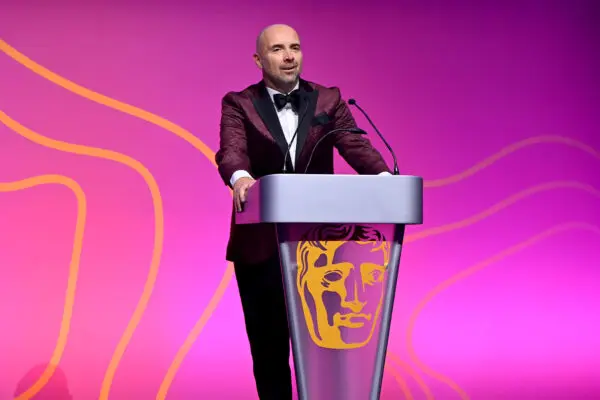Words by Simran Hans
In a chilly office overlooking London’s historic Fleet Street, June Givanni removes a small brass bird from inside a wooden box. The bird’s head is turned, as though peering over its shoulder. The brooch was given to her as a gift by an artist, who crafted it after spending time in the June Givanni PanAfrican Cinema Archive while studying at Central Saint Martins. They had been inspired by a concept that the curator, programmer and 2024’s Outstanding Contribution to Cinema award recipient had taught them about.
Sankofa was the name of the pioneering film and video collective founded in 1983 by Black British artists Isaac Julien, Martina Attille, Maureen Blackwood, Nadine Marsh-Edwards and Robert Crusz. But sankofa is also “a philosophy,” says Givanni, originating from the Akan people of Ghana. “It’s about knowing the past to better guide your future, symbolised by a bird that’s looking back.”









